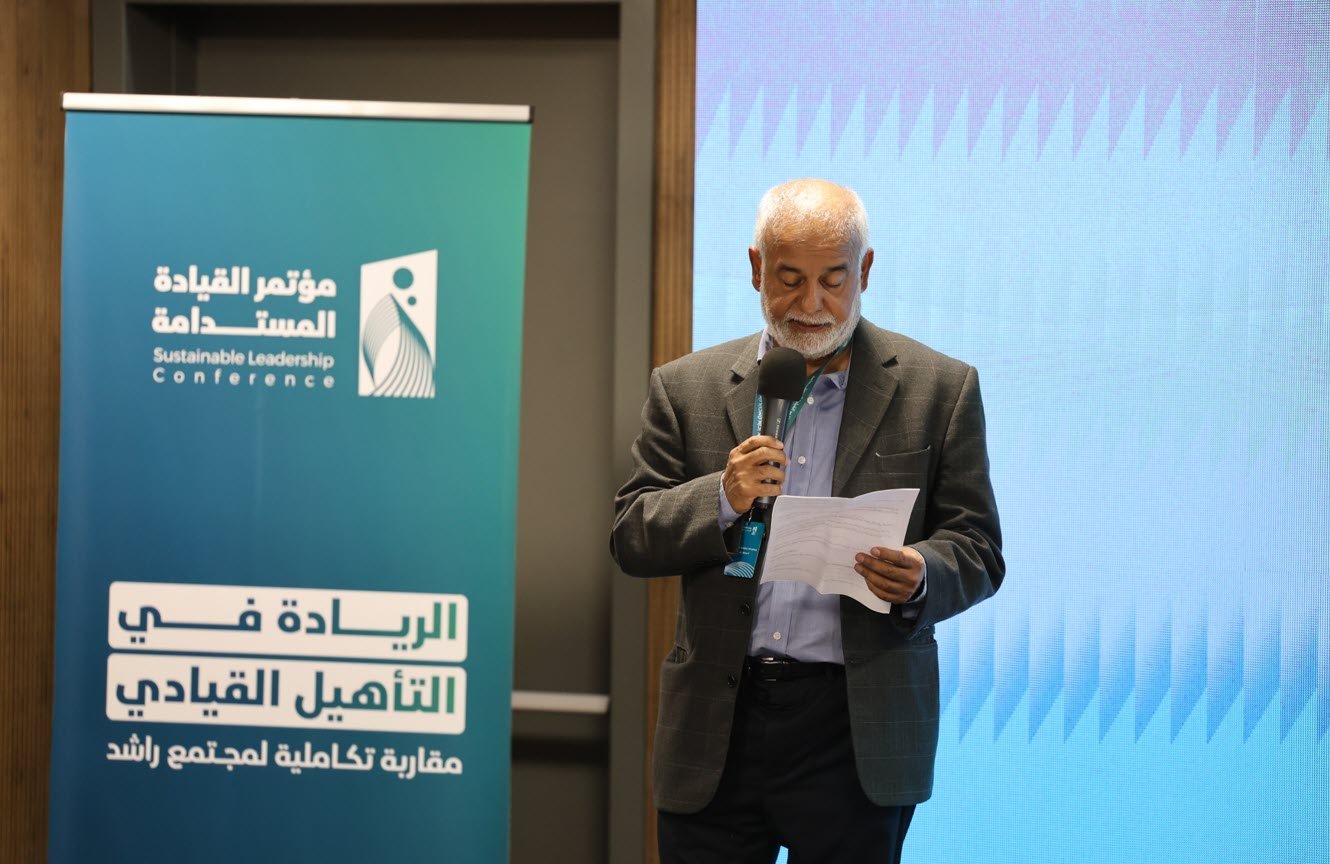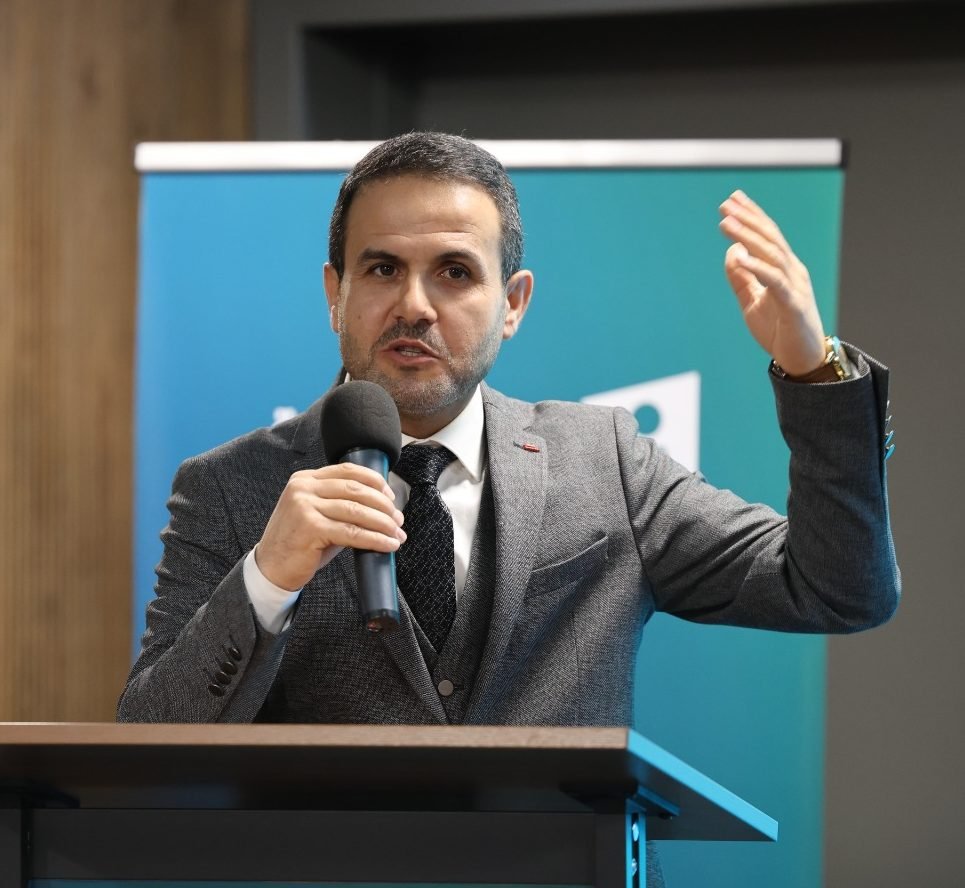To grow a generation of leaders to build a promising future for nations, communities, and humanity, we announce the launch of the third conference under the title:
Pioneering Guidelines of The Leadership Qualification Towards an Integrated Rapprochement Features for a Knowledgeable Community
From April 20th to April 21st, 2024, at one of the major universities in Istanbul
The conference is part of the Sustainable Leadership Program aimed at shaping elite awareness for leadership and entrepreneurship institutions, nurturing talents and the gifted, establishing guidelines for a more effective model of civil society, and addressing the leadership crisis in promising geographical and social areas.
The International Academy for Development and Education wakif - Turkey
International Academy for Development and Education in Turkey, are an institution specialized in launching high-quality programs in the education and development sector for individuals, institutions, and societies. We are committed to building adults with entrepreneurial skills, fostering civil society, implementing developmental and sustainable programs, and enhancing the capabilities of talented youth and leaders in terms of values, scientific knowledge, cultural understanding, and professional development. We empower them to take on effective roles, make a significant impact, and contribute to the service and advancement of society.
The foundation has trained thousands of young people, community leaders, and talent sponsors, believing in the importance of partnership and development with specialized international institutions.
Sheikh Abdullah Al-Nouri Charity Society
Sheikh Abdullah Al-Nouri Charity Society, a Kuwaiti charitable organization, plays a vital role in the building and development of impoverished communities through educational and advocacy programs. The society achieves this by improving communication with supporters and beneficiaries and optimizing the investment of human and financial resources. It boasts international partnerships and has been recognized for its successes in contributing to the architecture of the land and people, as well as in achieving development, prosperity, and rationalization.
An elite group of experts
An elite group of experts and international academics through the Diplomatic Institute for International Relations.
Building humans is the fundamental cornerstone for achieving the cultural advancement of societies and nations. While various natural resources, despite their preciousness, can be imported, the positive and active citizen is the only resource whose prosperity and development cannot be achieved except by qualifying them to contribute to the renaissance of their nation and the realization of human development. Qualifying community leaders in various fields is a fundamental condition for strategic planning and effective management of change projects in accordance with governance standards.
The field of training competencies and preparing individuals and leaders has witnessed growing interest. Leadership training institutions have flourished, and training courses have received significant demand, which is a positive indicator of awareness regarding the importance of preparing community leaders.
Despite all this, the question of the effectiveness of these training systems and their real impact continues to occupy the attention of researchers and stakeholders, especially the institutions benefiting from or supporting these training courses.
Some questions have arisen, such as: To what extent are governance standards respected in this field?
Do leadership training institutions and their frameworks and staff have accredited methodologies for measuring the real impact of their training actions and their effectiveness in enhancing the performance of the beneficiary groups?
The international models in this field are rich with theories, approaches, and methodologies that have proven their effectiveness. However, the question here is: How can we draw inspiration from their strengths and benefit from them? Are there critical studies of these experiences to identify the points of benefit and effectively utilize their methodologies and approaches?
Since cultural advancement is only achieved through considering the contextual discourse of each nation, what qualitative contribution can the civilizational vision of the region offer to benefit from human experience in this field and present its distinguished model?
If the visionary and values-based approach holds significance in the effectiveness of leadership training, then establishing a pioneering model in leadership development requires a description of the core competencies that enable a leadership personality to engage strategically at the communicative, managerial, and decision-making levels. This necessitates identifying appropriate training methodologies for acquiring these competencies. What are these core competencies? And what are the methods of training on them and integrating their requirements into training practice to achieve leadership excellence? The symposium's coordinated perspective seeks to address these previous challenges, then reframe them according to a new vision that contributes to establishing an innovative approach in leadership development. This holistic approach invokes both the values and cultural dimensions and seeks to draw inspiration from the outcomes of international experiences in the field. It is based on a philosophy of development aimed at embodying a comprehensive guide that aims to streamline leadership development practices, institutions, and staff, achieving high-quality outputs according to international standards.
To achieve these objectives, the conference's scientific committee has worked on developing precise axes and recruiting international experts, thinkers, and academics from around the world, as well as specialized researchers in their fields, to present their perspectives and approaches within the conference sessions through academic papers that combine academic depth and methodological rigour that aligns with the nature of the conference's theme and scope. Furthermore, each scientific session will conclude with analytical readings of its papers by specialized analysts, providing an opportunity for the specialized and qualitative audience attending the conference to contribute to enriching the discussion in addressing the conference's problematics.
Additionally, specialized scientific workshops will be organized during the conference as complementary sessions to the conference proceedings, aiming to establish a strategic framework for activating the conference's outcomes and implementing its recommendations.
And the conference concludes with the issuance of:
The Istanbul Declaration: Landmarks of Leadership Excellence in Leadership Development (Towards an Integrated Approach for an Enlightened Society)
- Evaluating construction and leadership training experiences in the Middle East and Africa region according to measurement and governance standards.
- A comparative study of various successful experiences in qualifying leaders and benefiting from them according to the specificities of the region’s civilizational vision.
- Presenting a values-based vision that establishes a pioneering model in leadership development for enlightened societies and the establishment of humane civilization.
- Providing a systematic vision of the basic competencies of the adult leadership personality.
- Preparing a guide of principles and methodologies suitable for the desired leadership personality specifications.
- Defining the features of an integrated strategy that establishes a new school in leadership qualification.
The conference targets personnel of institutions and organizations involved in leadership development, talent nurturing, community leadership, education, training fields, distinguished staff in institutes and universities, as well as students.
- The first axis: The reality of building and leadership training in the region - governance standards
- The second axis: Pioneering international models in leadership qualification
- The third axis: The Values Vision in Leadership Development - An Integrated Approach
- Fourth axis: Leadership personality competencies - foundations and training methodology
- The fifth axis: Features of a new model in leadership training for the region








